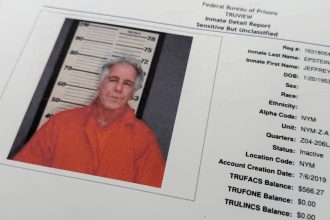TRAGIC CONTEST DEATH: MOTHER DIES FOR A NINTENDO WII IN SACRAMENTO, CALIFORNIA
In January 2007, Sacramento, California became the site of a heartbreaking and cautionary tragedy involving a local radio contest that ended in the loss of a young mother’s life. A promotional event, titled “Hold Your Wee for a Wii,” was hosted by the now-defunct KDND 107.9 “The End” radio station. The contest asked participants to drink increasing amounts of water over time without urinating, with the prize being a newly released Nintendo Wii game console — a popular item during that holiday season.
The premise may have sounded quirky or humorous to some, but the outcome was anything but. Among the contestants was a 28-year-old woman, a devoted mother of three, who had hoped to win the gaming console for her children. What was intended as a fun and lighthearted competition quickly turned tragic. After consuming approximately 1.5 gallons of water in a relatively short period, she began to experience severe physical symptoms. That same day, she returned home in visible discomfort, complained of an excruciating headache, and collapsed a few hours later. She never regained consciousness.
Medical professionals later confirmed that the cause of death was water intoxication, also known as hyponatremia — a condition that occurs when the body’s balance of electrolytes is disrupted by a rapid intake of excessive water. The kidneys, overwhelmed by the sudden influx of fluid, are unable to process the water quickly enough, leading to swelling in the brain and, in severe cases, death.
This event quickly gained national attention, not just for the devastating outcome, but for the questions it raised about media accountability, ethics in broadcasting, and the fine line between entertainment and endangerment.
A DEADLY CONTEST FORMAT
The structure of the contest was simple but extremely dangerous. Contestants were required to drink increasing amounts of water every 15 minutes without using the bathroom. The last person standing—who managed to hold out the longest—would be declared the winner. While many participants reported discomfort, few realized the true physiological risks associated with such a stunt.
Throughout the competition, some radio hosts were reportedly laughing and joking about the visible distress of participants. At one point during the broadcast, which was aired live, on-air personalities could be heard speculating about the possibility of participants getting sick or suffering from water intoxication—though they continued the contest regardless. Tragically, those fears turned out to be valid, and the consequences irreversible.
IMMEDIATE AFTERMATH
Once news of the woman’s death became public, public outrage followed swiftly. The Sacramento County Sheriff’s Department launched an investigation into the incident. While no criminal charges were filed, the implications for the radio station and its parent company were significant.
KDND faced immense scrutiny, not only from the public but from regulatory bodies and industry watchdogs. The Federal Communications Commission (FCC) began reviewing the station’s license. Ten employees of the station, including the three on-air hosts who managed the contest, were fired shortly after the incident.
Civil proceedings followed. In a wrongful death lawsuit brought by the victim’s family, a Sacramento Superior Court jury awarded $16.5 million in damages. Jurors found the station liable for negligence and for failing to take reasonable steps to ensure the safety of participants. Evidence presented during the trial included internal station emails and witness testimonies, revealing that the danger of water intoxication had been mentioned during the planning stages of the event—but was ultimately ignored or dismissed.
A LIFE LOST FOR A GAME CONSOLE
The tragic irony of the event was not lost on the public. A devoted mother lost her life in an effort to win a toy for her children. What she had intended as an act of love—participating in a contest for a gift that might bring joy to her kids—ended in unthinkable sorrow.
The incident also laid bare a broader cultural issue: the way media, especially radio and digital platforms, increasingly chase shock value and sensationalism in pursuit of ratings and clicks. In the wake of this death, discussions emerged about the responsibility broadcasters have toward their audience and the people they involve in promotional activities.
DANGEROUS STUNTS IN MEDIA: A GROWING CONCERN
While the “Hold Your Wee for a Wii” contest was one of the most extreme and tragic examples, it is by no means the only instance in which entertainment media has crossed ethical lines. In the pursuit of viral content, shock factor, and competitive edge, many outlets have organized events or encouraged behavior that places individuals at physical, emotional, or psychological risk.
Television game shows, social media “challenges,” and prank culture have all been criticized for pushing the limits of safety and good taste. Sometimes, these stunts are labeled as “experiments” or “jokes,” but the consequences can be far from funny.
In the years following the Sacramento tragedy, various platforms have introduced stricter guidelines for contests and public participation. But enforcement remains inconsistent, and the temptation to create outrageous content still looms large in the era of likes, shares, and trending hashtags.
THE SCIENCE BEHIND WATER INTOXICATION
Water intoxication, or hyponatremia, is rare but can occur when a large volume of water is consumed in a short amount of time, overwhelming the kidneys and diluting the sodium in the bloodstream. Sodium is essential for regulating water balance in and around cells. When levels fall too low, water moves into cells, causing them to swell. In the brain, this swelling can be fatal due to the limited space inside the skull.
Early symptoms of hyponatremia include headache, nausea, vomiting, and confusion. If untreated, it can lead to seizures, coma, and death. The condition is especially dangerous when symptoms are mistaken for harmless discomfort—something that tragically occurred in this case.
A LASTING LEGACY AND A WARNING TO THE INDUSTRY
Though the radio station involved in the incident was not shut down immediately, the shadow of the tragedy hung over it for years. In 2017, nearly a decade after the incident, the FCC declined to renew KDND’s broadcast license, citing the contest and its outcome among the reasons. The frequency was eventually reassigned to a new operator, effectively ending the station’s run.
For the victim’s family, the court ruling brought some measure of justice, but no compensation could undo the loss they endured. The case has since been used as a critical example in discussions about contest safety and media ethics in journalism schools, legal seminars, and broadcast training programs.
MOVING FORWARD: CALLS FOR CHANGE
In light of this and other similar incidents, media outlets must prioritize participant welfare over spectacle. Regulatory bodies are urged to enforce stronger rules governing public contests and to require risk assessments and medical oversight for events involving physical challenges or consumption.
Digital platforms, too, must hold influencers and content creators accountable when public “challenges” promote unsafe behavior. Even with disclaimers, the viral nature of the internet often means that imitation can spread faster than warnings. Education campaigns aimed at both creators and audiences are needed to reinforce the idea that not all entertainment is harmless.
Broadcasters, advertisers, and content creators alike must adopt a standard of care when engaging the public. Behind every rating point and every viral view is a real person—someone with a family, a future, and a life that cannot be replaced.
REMEMBERING THE VICTIM
At the heart of this story is a young woman who was full of life, laughter, and love for her children. Her decision to participate in the contest stemmed from a desire familiar to many parents: to bring joy to her family. Her life was cut short not by malice, but by a combination of poor planning, negligence, and a disregard for health warnings that should never have been ignored.
Her memory has since been honored in various ways—through public discussions, policy changes, and advocacy for greater media responsibility. Her story serves not just as a tragedy, but as a catalyst for awareness and change.
FINAL THOUGHTS
This heartbreaking incident in Sacramento should not be seen as an anomaly, but as a sobering lesson about the responsibilities that come with power in media. Whether it’s a local radio station or a global video platform, with reach comes risk—and with risk comes responsibility.
The line between harmless fun and hazardous exploitation can sometimes be thin, but it must be observed. No contest, no promotion, and no piece of entertainment is worth a life.




